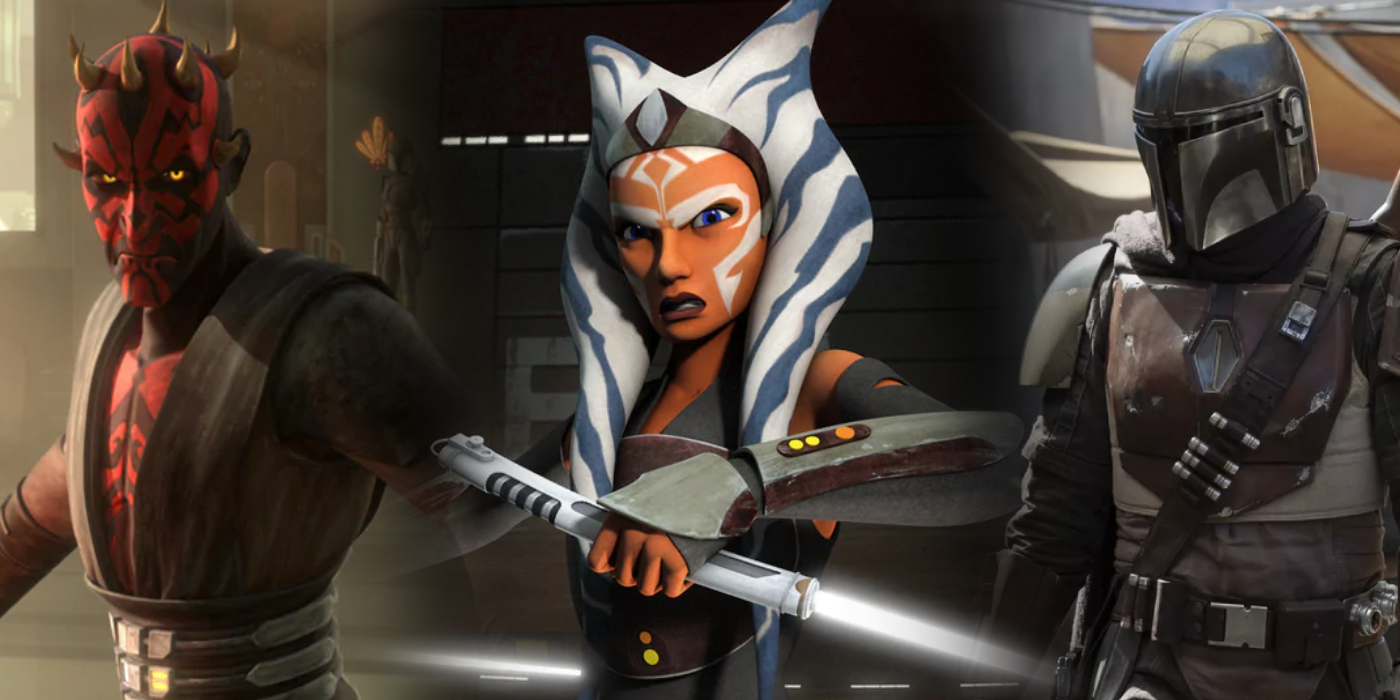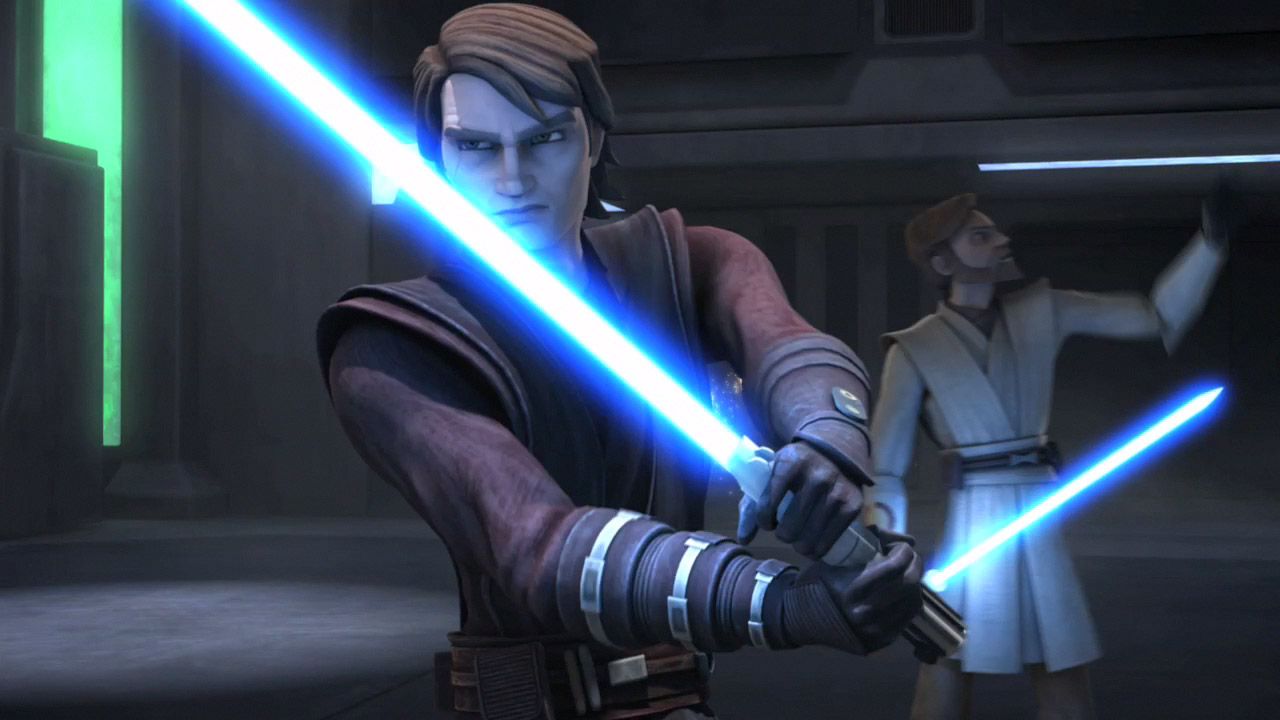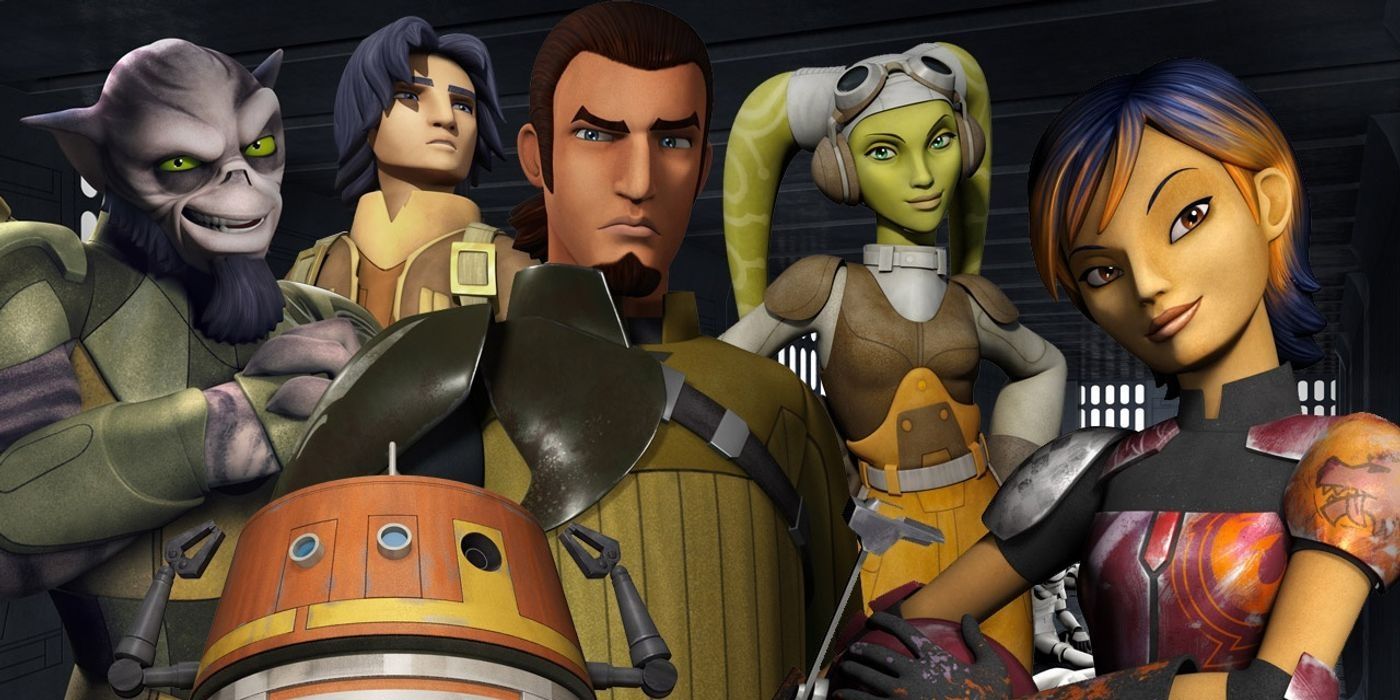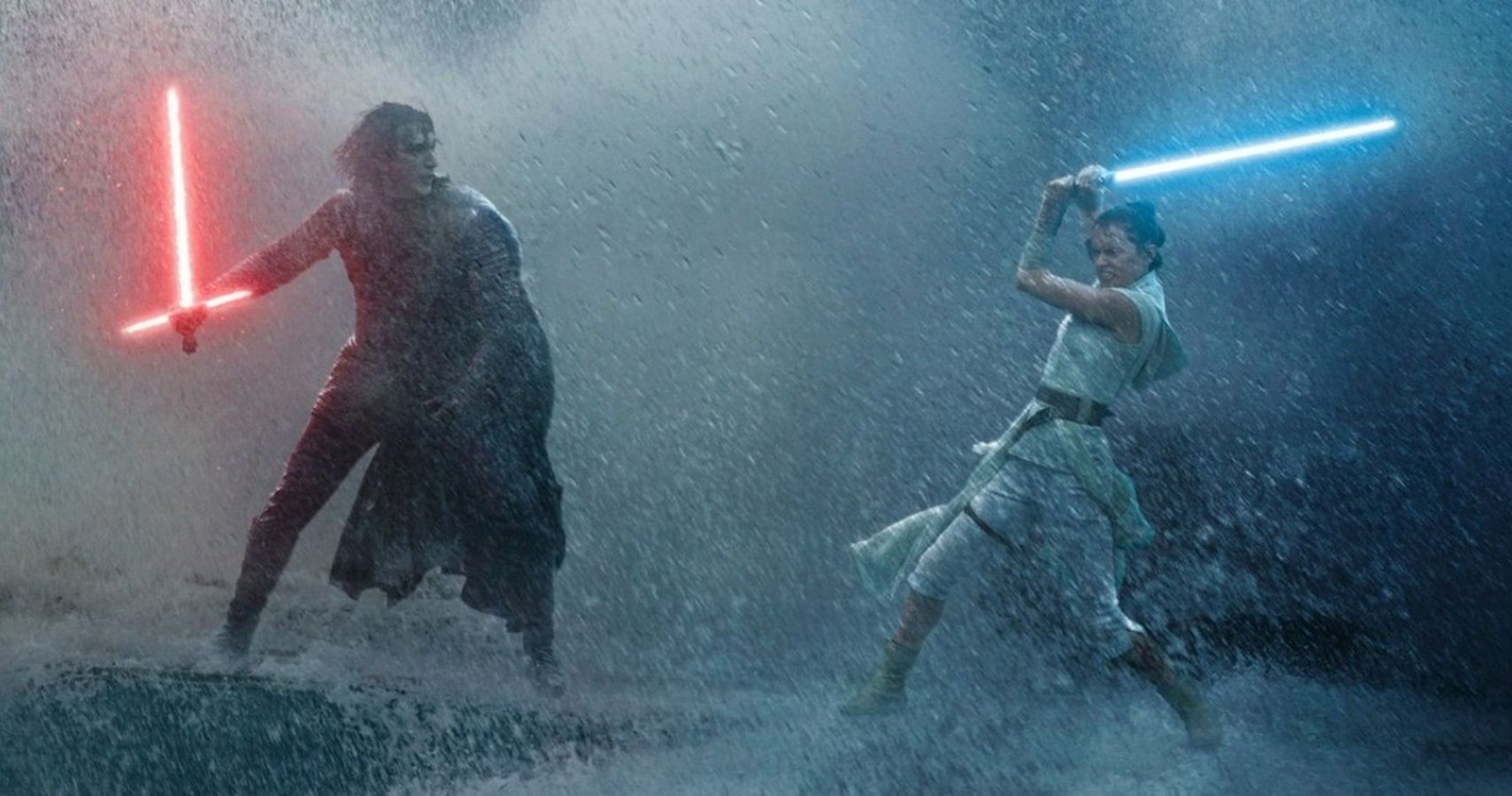With Season 1 of The Mandalorian satisfyingly wrapped-up, Season 2 on the horizon, and the last season of The Clone Wars just around the corner, it’s a good time to be a Star Wars fan. Just two months removed from The Rise of Skywalker capping off a wildly divisive run of cinematic releases from a galaxy far, far away, what’s changed? It goes back to one man: Dave Filoni.
In 2008, Filoni was a little-known animator, fresh off experience on the first season of Avatar: The Last Airbender. George Lucas surprised many by choosing Filoni to help shape Star Wars’ on-screen future after the conclusion of the prequels, as the director of the Clone Wars animated movie and creative force behind the proceeding Cartoon Network series. The existence of the film itself was bewildering -- do we need more prequel era stories about Anakin and Obi-Wan? And its about Anakin’s padawan, who is just never discussed again? And after all, the prequels are bad! Though the theatrically released film was universally panned, it proved successful enough for the series to continue, and what a miracle it was.
After the boring, seemingly pointless Clone Wars movie, who would’ve thought that the series it spawned, on Cartoon Network no less, would be one of the best-told stories in the Star Wars Universe. The first on-screen story to truly feel removed from Lucas’ own sensibilities, the larger narrative was aimed under the guidance of the world’s creator but was first and foremost a Dave Filoni story. Interestingly enough, you can see how Filoni matured as a storyteller along with the show in the first few seasons, growing from an imitation of the live-action films to embracing its own little corner of the universe.
Over time, fans began to embrace what made The Clone Wars so special, cheering on the recurring appearances of characters created for the show like Hondo Ohnaka and the handful of clone troopers with personality, rather than just crossover appearances from established characters like Yoda and Darth Maul. Just as the show was really hitting its groove, telling some of the boldest stories in the Star Wars universe and addressing the gray-area morality of the Jedi acting as a militarized group, Disney pulled the plug.
Though Clone Wars wrapped its story up quicker than the fans and creators had hoped, it still provided a satisfying conclusion, fully overcoming the bad rap of the film and the early episodes. When you look back on those first five televised seasons as a whole, the show did a few things many would consider unthinkable -- it offered actual depth to the prequel films while creating something entirely new in the process.
Star Wars Rebels, Filoni’s follow-up to The Clone Wars, had a far less steep hill to climb. Unburdened from the constraints of a brief timeline between two films and without the need to work around the canon of major characters, Filoni, along with new collaborators, Simon Kinberg, Carrie Beck and Greg Weisman, learned from his mistakes and delivered something interesting right out of the gate.
The premise was far simple and offered a more compelling hook, as the show followed a team of rebels, pre-Original trilogy, led by one of the few surviving Jedi and his new Force-sensitive padawan. Eventually, Filoni pulled out the rug from everyone and the show dove headfirst back into the same corner of the universe as The Clone Wars, bringing back many of the characters and themes from his earlier show. Longtime fans of the previous series found it to be incredibly rewarding, but this was a bold risk considering the many new viewers of Rebels, itself more appealing to younger audiences on the new home of Disney XD.
Nevertheless, Filoni was clearly staking his claim, promising that his pieces of the Star Wars universe would work together, building upon one another to tell a larger, more epic story.
But since the premiere of Rebels, much has changed in the Star Wars universe. In theaters, Disney’s Star Wars films have sort of led to the fandom tearing itself apart. In 2015 and 2016, Episode VII: The Force Awakens and Rogue One: A Star Wars Story seemed to hint at a future of fun, passable films that couldn’t quite replicate Lucas’ original magic. But then Episode VIII: The Last Jedi came out, and for the last two and a half years arguing about Star Wars has become one of our most beloved pastimes. Much like Filoni’s many stories, Rian Johnson’s film took huge risks with the property.
The Last Jedi is easily the boldest and most unique story in the canon and a massive step forward on every level. It forced the characters that so many grew up admiring to actually look at themselves and question who they are. The film humanized these larger-than-life figures in a way audiences had never seen before, including addressing the gray morality of the Jedi, who once considered themselves the ultimate arbiters of Justice. Many didn’t see the film this way, and were largely put off by Johnson’s boldness. Rather than view the story as a whole, and analyze what it means, many viewers instead felt it betrayed what they loved about Star Wars in the first place, and couldn’t get behind the new risks it took. Just months later, this was followed-up with Solo: A Star Wars Story, a lifeless, gray Han Solo origin that lost its filmmakers halfway through shooting.
Now, here we are, just months after Episode IX: The Rise of Skywalker, the most divisive film in the series in a whole two years. Though certainly not bad, JJ Abrams’ Skywalker seemed to focus far more on delivering what fans said they wanted than achieving a more unique vision, and almost feels more like a 150-minute highlight reel than a conclusion to the 42-year saga. With no more announced films in the franchise, rapidly declining box office returns and the worst reviews of any live-action movie in the series, one would expect fans of the series to be pessimistic. Thankfully, the last few years of Star Wars television have been very kind, and promise to only improve.
On smaller screens, Rebels offered another satisfying conclusion from the Cowboy Hat-wearing animator in early 2018. The finale comes full-circle, building upon The Clone Wars and potentially setting up a third story in that vein, though there’s been little movement on that front. He also helped create Star Wars Resistance for Disney XD, and though Filoni took a less hands-on role in its storytelling, it still found universally positive reception. And last year, Jon Favreau recruited Filoni to help create The Mandalorian for Disney+.
The show, along with the now inescapable Baby Yoda, became Disney’s first entry in the Star Wars universe to have a large-scale cultural impact and inspire widespread, deep admiration. In The Mandalorian’s final moments, it mirrored what he did in the finale of Season 1 of Rebels, once again delivering a final twist that this story also occupies that same, Dave Filoni corner of the Star Wars universe. On top of all of this, next week the creator’s beloved Clone Wars returns to tie up all of those loose threads.
Whether you love or hate Disney’s wildly divisive live-action Star Wars entries, odds are you have seen (and enjoyed) something with Dave Filoni’s fingerprints. Now, with the future of the galaxy far, far away largely obscured, there’s reason for optimism, because it lies in good hands.
Premiering Friday, Feb. 21, on Disney+, the final season of Star Wars: The Clone Wars stars Matt Lanter as Anakin Skywalker, Ashley Eckstein as Ahsoka Tano, Dee Bradley Baker as Captain Rex and the clone troopers, James Arnold Taylor as Obi-Wan Kenobi, Katee Sackhoff as Bo-Katan, and Sam Witwer as Maul.




